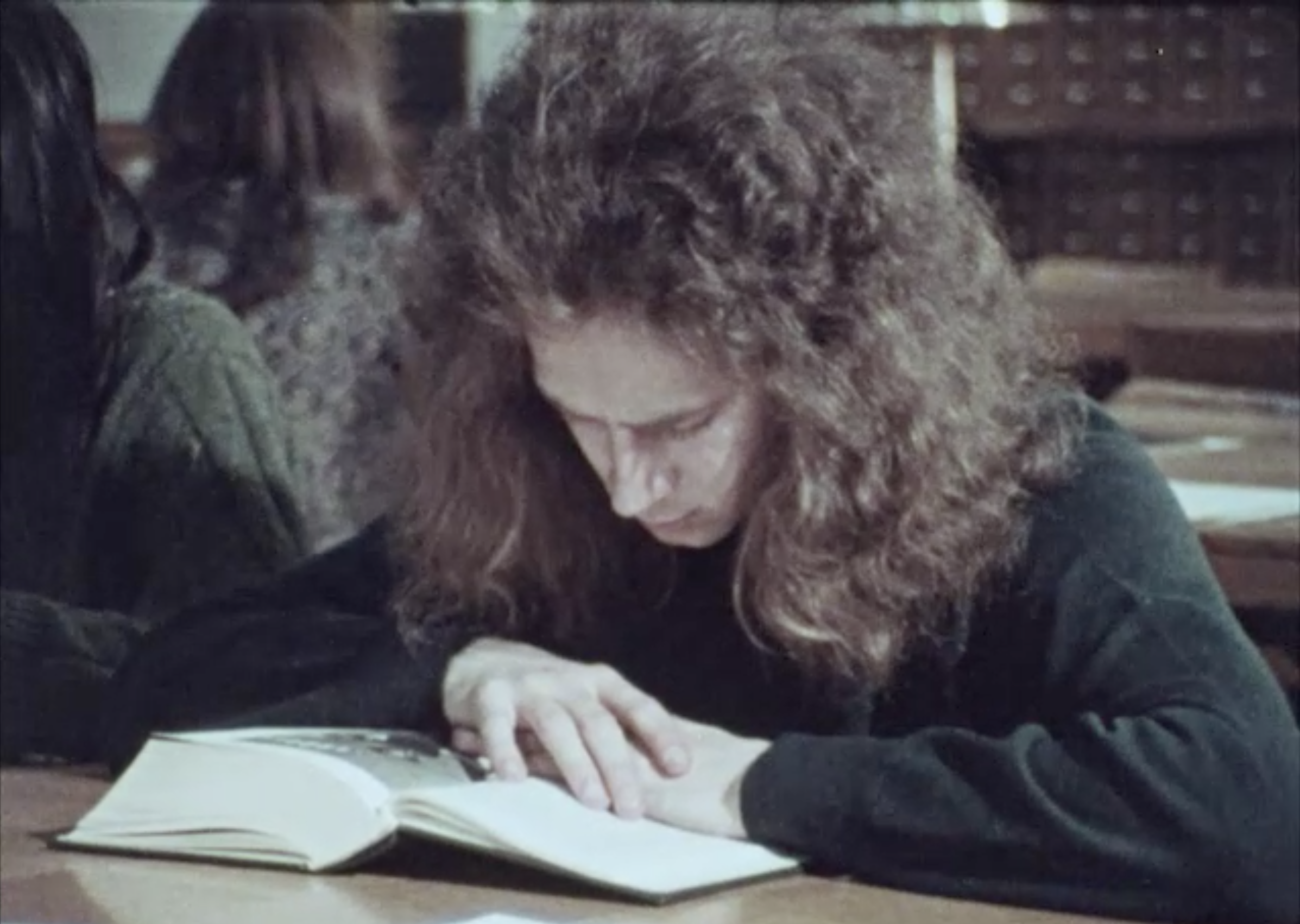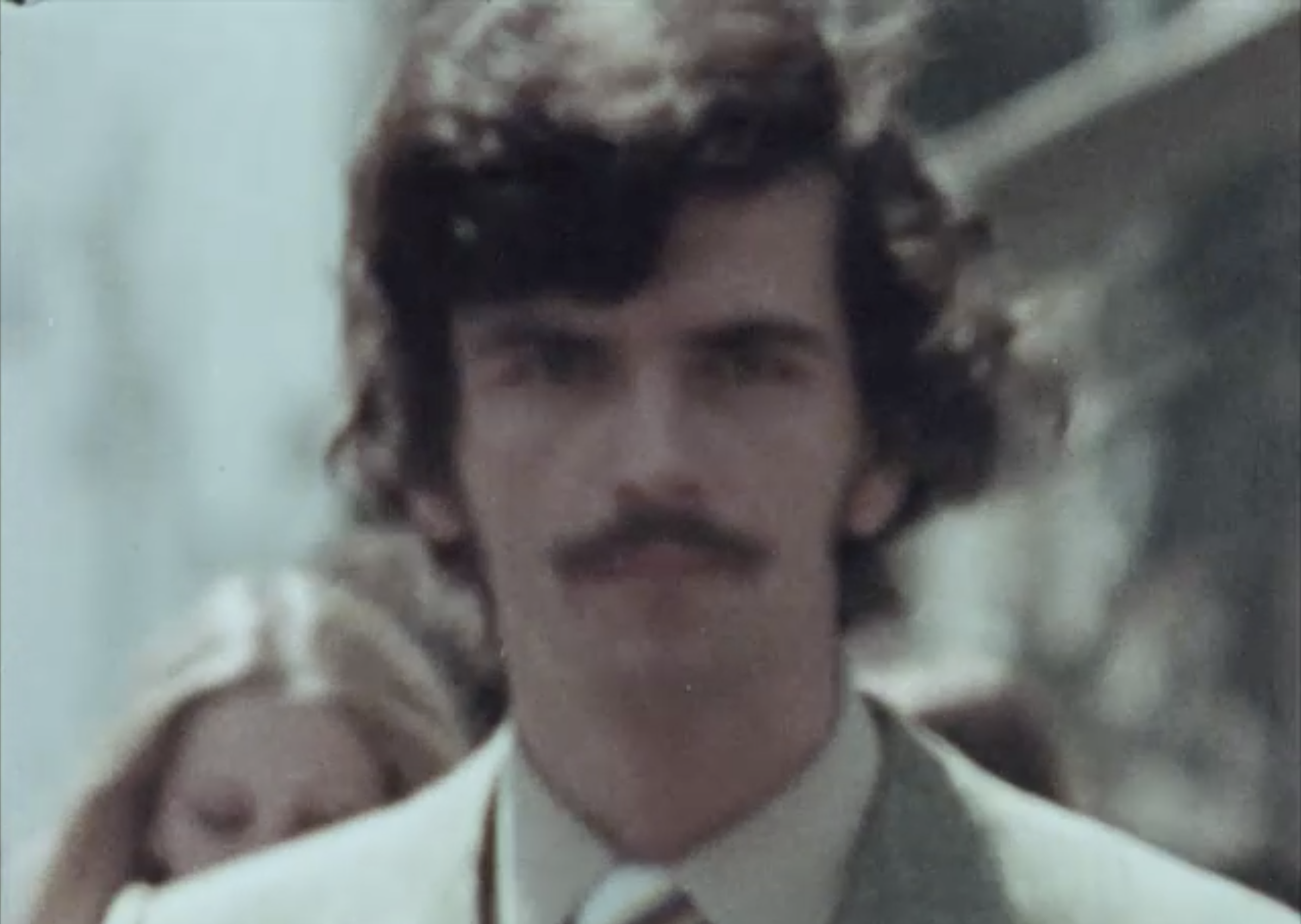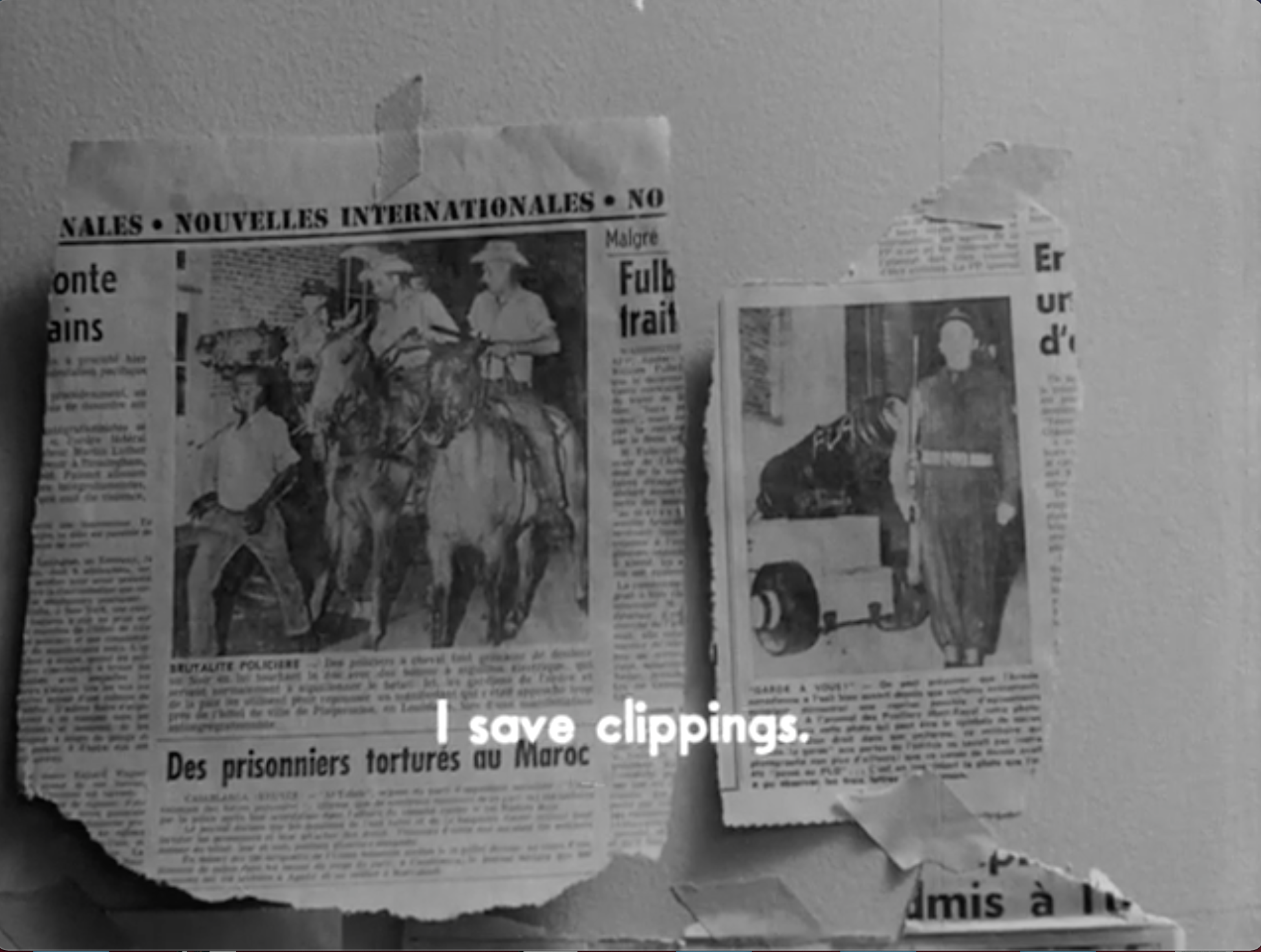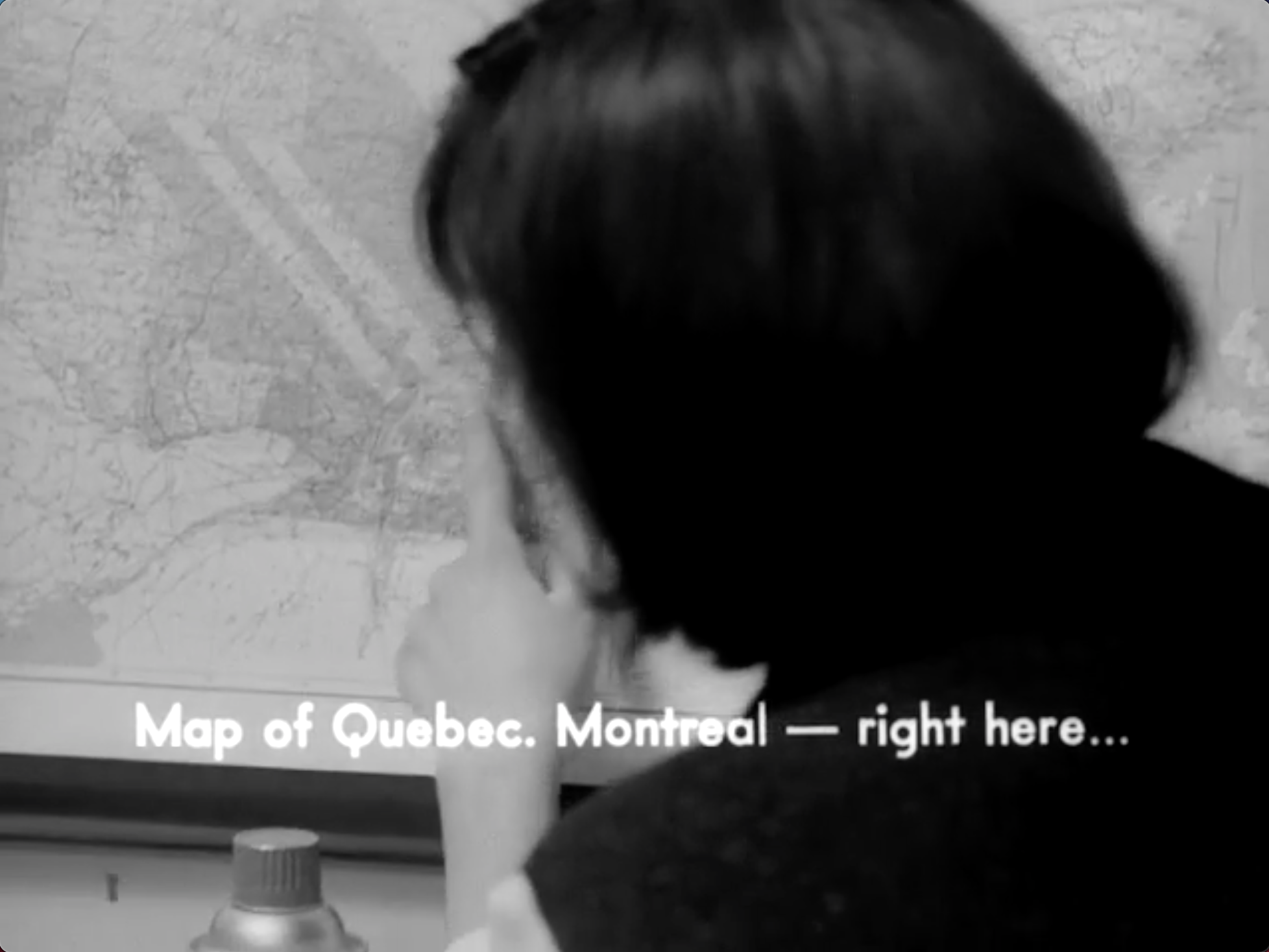Nighttime is often the wrong time for our protagonist, Lucien, in Pierre Patry’s explosive Trouble-fête, an early example feature filmmaking in Quebec channeling the frustrations and the desire for change that fuelled the Quiet Revolution. In other words, nighttime may be associated with bohemianism and liberation at times in this film, but it is also connected to some of the narrative’s greatest conflicts and tensions (hooliganism, homophobia, manslaughter, death).
From our perspective as viewers, however, nighttime is often the right time in this film, because so many of its nocturnal sequences, as captured by veteran cinematographer Jean Roy, are so breathtaking. From the film’s opening moments featuring a gang of young roustabouts cruising along rue Sainte-Catherine, to its chase scene that begins at the belvedere Camilien-Houde and continues through the streets and alleys of the Plateau and Little Italy, to its climactic finale in centre-ville against the backdrop of the Saint-Jean-Baptiste Day Parade, Montreal by night circa 1963 is a major focus of this film.
“Faîtes votre choix! Les jeux sont faits! La révolution tranquille est en marche!”
If you’d like to check out this early youthquake film (it was marketed as a controversial film, a “film-choc”) set in the colleges, jazz clubs, and streets of Montreal, you can find it HERE.
aj
[Montreal by night; nocturnal cinematography; rue Ste-Catherine; Saint-Jean-Baptiste Day; restaurants; police; car chases; cruising; drag racing; troublemakers]


















































